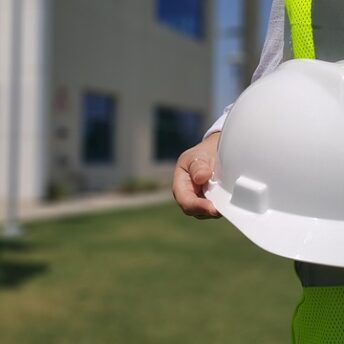The world of construction thrives on meticulous planning, but unforeseen circumstances can disrupt even the most carefully crafted project. Force majeure, a legal concept excusing parties from contractual obligations due to extraordinary events, offers a potential lifeline in such situations. However, is a force majeure clause mandatory in a construction contract? At Blackstone Solicitors, a leading law firm across England and Wales, we delve into the intricacies of force majeure and explore alternative avenues for relief in its absence. In this article, Does Force Majeure Have To Be In A Contract, we will delve deeper into the subject.
Please click here to find out more about our Construction Law services
Free Initial Telephone Discussion
For a free initial discussion with a member of our New Enquiries Team, get in touch with us today. We are experienced in dealing with all the legal aspects of force majeure in construction and once instructed, we will review your situation and discuss the options open to you in a clear and approachable manner. Early expert legal assistance can help ensure you are on the best possible footing from the start and also avoid the stress of dealing with these issues on your own. Simply call us on 0345 901 0445 or click here to make a free enquiry and a member of the team will get back to you.
Force Majeure: A Contractual Safeguard
A force majeure clause explicitly outlines events beyond the reasonable control of either party that can significantly hinder or prevent fulfilling contractual obligations. These events, often referred to as “force majeure events,” could be natural disasters, wars, pandemics, or government actions. When such an event occurs, the clause may offer relief, potentially excusing a party from certain contractual obligations or granting an extension of time for completion.
Force Majeure vs. Common Law Principles
While a force majeure clause provides clear contractual protection, it’s important to understand its limitations in the context of English and Welsh law. Here’s why a force majeure clause might not be strictly necessary:
- Frustration of Contract: Under the common law doctrine of frustration, a contract can be discharged (terminated) if an unforeseen event renders its performance impossible or fundamentally different from what was originally contemplated at the time of contracting. However, the threshold for proving frustration is high, requiring a significant change in circumstances that destroys the foundation of the contract.
- Implied Terms: Courts may imply terms into a contract based on what they consider fair and reasonable in the circumstances. In some cases, courts may imply a term excusing a party’s performance due to unforeseen events, even without an explicit force majeure clause. However, the success of such an argument depends on the specific circumstances and the judge’s interpretation of fairness.
Benefits of a Force Majeure Clause
Despite alternative avenues for relief, a well-drafted force majeure clause offers several advantages in construction contracts:
- Clarity and Certainty: A clear clause eliminates ambiguity regarding the events that qualify for relief and the extent of that relief. This fosters smoother communication and minimizes the risk of disputes during unforeseen disruptions.
- Shifting the Burden of Proof: The burden of proving a force majeure event typically falls on the party seeking relief. A clear clause streamlines this process by outlining the specific criteria that need to be met.
- Mitigation Measures: The clause can encourage both parties to take reasonable steps to mitigate the impact of a force majeure event, minimizing project delays and costs.
When is a Force Majeure Clause Particularly Important?
While not mandatory, a force majeure clause becomes particularly crucial in the following scenarios:
- Complex or Long-Term Projects: For projects spanning extended durations or involving complex activities, the likelihood of encountering unforeseen events increases. A force majeure clause provides a clear framework for navigating such disruptions.
- High-Risk Projects: Projects located in areas prone to natural disasters or political unrest benefit from a robust force majeure clause to manage the inherent risks associated with such locations.
- Tight Schedules and Budgets: When project timelines and budgets are particularly constrained, a force majeure clause protects the contractor from penalties for delays caused by unforeseen events beyond their control.
Blackstone Solicitors: Your Partner in Construction Law
At Blackstone Solicitors, our construction law specialists possess a wealth of experience in drafting and negotiating robust construction contracts, including effective force majeure clauses. We can assist you in:
- Reviewing and negotiating contract terms: We will ensure the force majeure clause is clear, comprehensive, and protects your interests in the event of unforeseen disruptions.
- Assessing alternative avenues for relief: Even in the absence of a force majeure clause, we will analyse the specific circumstances of a project and advise you on potential common law remedies like frustration of contract.
- Dispute resolution: Should a disagreement arise regarding contractual obligations due to unforeseen events, our team will represent your interests effectively and work towards a swift and favourable resolution.
Conclusion
While a force majeure clause isn’t mandatory in construction contracts under English and Welsh law, its inclusion offers significant advantages in terms of clarity, certainty, and risk mitigation. At Blackstone Solicitors, we understand the importance of robust contractual protection in construction projects. Contact us today to discuss your specific requirements and ensure your construction endeavours are well-equipped to navigate the unexpected.
How we can help
We have a proven track-record of helping clients deal with the legal implications of force majeure in construction. We will guide you through all the necessary legal due diligence in a comprehensive and timely manner and support and advise you with all the negotiations. We firmly believe that with the right solicitors by your side, the entire process will seem more manageable and far less daunting.
Please click here to find out more about our construction legal services.
Deciding when (or whether) to incorporate, what kind of ownership How to Contact our Construction Solicitors
It is important for you to be well informed about the issues and obstacles you are facing. However, expert legal support is crucial in terms of saving you money and ensuring you achieve a positive outcome.
To speak to our Construction solicitors today, simply call us on 0345 901 0445 , or allow a member of the team to get back to you by filling in our online contact form. We are well known across the country and can assist wherever you are based. We also have offices based in Cheshire and London.
Disclaimer: This article provides general information only and does not constitute legal advice on any individual circumstances.





